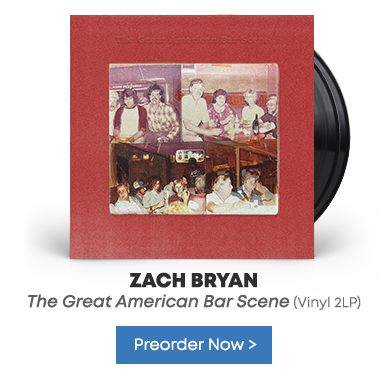On Monday, America will remember the life of minister and activist Martin Luther King Jr. A work-free holiday for many, it also signifies a time for reflection. Many of the issues of the Civil Rights era remain relevant today, even if the names, places, and specifics have changed. Such is evident when one revisits the songs of the 50s and 60s. Many contain lessons applicable for modern times. Here, we look back at five notable Civil Rights-era songs. Some are hopeful, some feel nervous, and some seek to analyze the news. All endure as vital pieces of U.S. history.
The Staple Singers, "Why (Am I Treated So Bad)?"
A constant in Mavis Staples' live sets, this funky blues-gospel howler was first cut in 1967. While referencing events of ten years prior, the Staple Singers gave the political anthem a timeless sheen by focusing on human emotions rather than simply providing a history lesson. Written by family patriarch Roebuck "Pops" Staples, the song reflects on the Little Rock Nine, a group of nine African-American students who were enrolled in the previously segregated Little Rock Central High School in 1957. In a distressing sign of the times, the Arkansas National Guard was ordered by the governor to prevent the students from entering the school. The Staple Singers tackle the weighty topic with force, with Mavis' sharp scratch of a voice cutting through the repeated refrain, sounding hurt in one verse and frustrated in the next. But handclaps – as well as an assortment of vocalists – seek to create a communal feel, even as the Staple Singers can't comprehend why they feel so alone.
Sam Cooke, "A Change Is Gonna Come"
A gloriously ornate composition, and one that sonically pivots from Sam Cooke's soul- and gospel-inflected tunes to embrace pop classicism. Cooke's most overtly political tune – and one with mythic beginnings said to be inspired by Cooke and his team being refused a hotel room in Louisiana – "A Change Is Gonna Come" intermingles personal experiences, heavenly metaphors, generational dread, and beaten-down-but-not-hopeless optimism. "So tired, so tried of suffering/Standing by myself/And standing up alone," Cooke sings with weary grace, zeroing in on a sense of fear, isolation, and restlessness. When he gets to the title line of the song, we don't hear elation in his vocals. Instead, we sense desperation. Cooke and his collaborator René Hall tackled the song as if it were a film score, giving it a dazzlingly lush arrangement with a full orchestra. Violins mourn while a horn section provides strength, capturing the mix of emotions on display.
The Impressions, "People Get Ready"
By 1965, Curtis Mayfield had already written a number of songs that are today associated with the Civil Rights movement – "It's All Right" and "Keep on Pushing" among them. Yet among Mayfield's work with the Impressions, none is as overtly political as "People Get Ready." Musically, the song is slow and warm, accentuated by light-touching horns and strings, as well as Mayfield's own inventive guitar work. Between verses, he seems to be trying to slow the tune down, his spare and refined playing conjuring an aura of intimacy and reflection. Lyrically, Mayfield relies heavily on train imagery, tapping into the notion of the Underground Railroad and how it came to symbolize hope for a better future. "You don't need no baggage/Just get on board," the Impressions sing in unison, asking listeners to focus on a better tomorrow rather than the trials of the past.
Bob Dylan, "Only a Pawn in Their Game"
No list of such songs would be complete without at least one selection from the bard from Duluth, Minnesota. While Bob Dylan's most famous Civil Rights era song may be "Blowin' in the Wind," he continued to tackle issues of race with venomous passion on "Only a Pawn in Their Game," a striking track from 1964's The Times They Are A-Changin'. What's so remarkable is the way Dylan takes a tragedy – the assassination of Civil Rights activist Medgar Evers – and zooms out to frame it in the context of American politics at large. The song doesn't function as a straight condemnation of Evers' killer, nor is it an ode to Evers' work. Rather, the work asks listeners to question those in power, as Dylan portrays Evers' murderer as a puppet in a bigger plot designed to maintain the status quo. An acoustic strummer, Dylan delivers the song as if a newspaper editorial.
Pete Seeger, "We Shall Overcome"
Folk legend Pete Seeger is most commonly associated with this song, which boasts a long, important history. The names of any number of gospel or folk artists can be linked to it. "We Shall Overcome" encourages mass sing-alongs and allows for plenty of improvisation, making it a staple even today at protests and allowing it to easily reflect the issues of the era. Seeger in concerts often sang it as an orator, vocalizing the lyrics loud and clear to allow for crowd unity. It began as a hymn, written by Reverend Charles Tindley around 1903, and takes its melody from an African-American gospel song titled "I'll Be Alright." Seeger tweaked it to include references to Rosa Parks and Martin Luther King Jr. In the latter years of his life, Seeger occasionally dismissed it as overly optimistic. Still, the repeated refrain "we shall overcome, someday" acknowledges there's always to be work to be done.
Photo credit: Chris Strong
12th Jan 2018




































